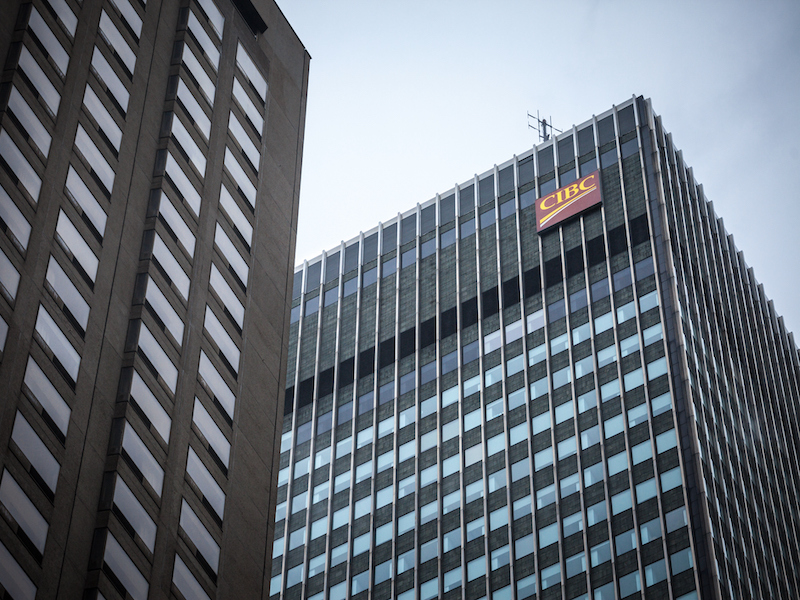
CIBC’s second-quarter results showed profits up from last year as the bank’s share of bad loans benefited from efforts to cut exposure to the U.S. office segment.
The bank reported Thursday it had a profit of $1.75 billion, or $1.79 per diluted share for the quarter ending April 30, up from $1.69 billion or $1.76 per share in the same quarter last year.
Income climbed as revenue totalled $6.16 billion in the quarter, up from $5.70 billion a year ago.
Profits were also helped as provisions for credit loss, which, while up from last year, dropped from last quarter, avoiding the steady climb seen at most other banks.
CIBC’s provision for credit losses in the quarter amounted to $514 million, up from $438 million a year earlier, but down 12% from last quarter.
The improvement came as the bank has worked to reduce its U.S. commercial loan portfolio, which has been struggling as work trends have cut demand for office space.
“We continue to de-emphasize certain segments of our institutional, commercial real estate business,” said chief executive Victor Dodig on an earnings call Thursday.
The bank has cut its U.S. commercial loan balance by almost a billion dollars since the second quarter of last year, while its gross impaired loan ratio dropped to 10.3% in the second quarter from 19.7% in the first.
The sector is still a heightened area of risk for the bank though. The ratio of provisions to total loans stands at 1.2% for U.S. commercial, compared with 0.34% for the bank overall and for its Canadian personal and business segment.
Canadian banking saw a slight drop from last quarter, but the bank expects provisions to creep up this year as high interest rates persist.
“We continue to expect (provisions for credit loss) trending up a little bit more in the second half of the year,” said chief risk officer Frank Guse on the call.
“That should be expected against the macroeconomic environment, but we do remain overall very comfortable with our performance and credit quality in the Canadian consumer book.”
On an adjusted basis, CIBC says it earned $1.75 per diluted share in its latest quarter, up from an adjusted profit of $1.70 per diluted share in the same quarter last year.
Analysts on average had expected a profit of $1.65 per share, according to LSEG Data & Analytics.
CIBC’s lower-than-expected credit provisions was a key reason for the beat, while analysts also pointed to higher revenue and lower taxes as other factors.
The bank said its Canadian personal and business banking operations earned $649 million for the second quarter, up from $638 million a year earlier. The segment was helped by higher revenue driven by higher net interest margin, volume growth and the impact of an additional day in the current quarter, partially offset by a higher provisions for credit losses and rising expenses.
The bank’s Canadian commercial banking and wealth management business earned $456 million in its latest quarter, up from $452 million in the same quarter last year.
Meanwhile, CIBC’s U.S. commercial banking and wealth management business earned $93 million, up from $55 million a year ago.
CIBC’s capital markets and direct financial services unit earned $560 million, up from $497 million in the same quarter last year.
The bank’s “corporate and other” group reported a loss of $9 million in its latest quarter compared with a profit of $47 million a year ago.